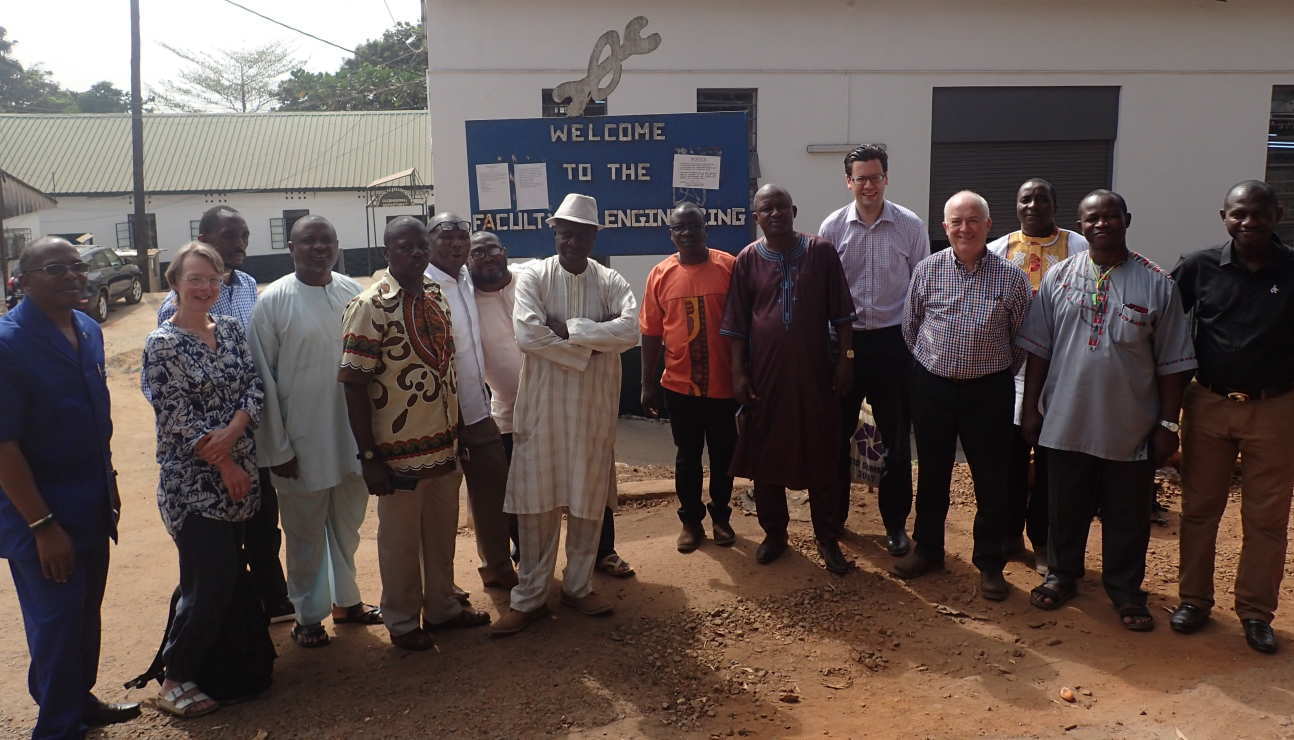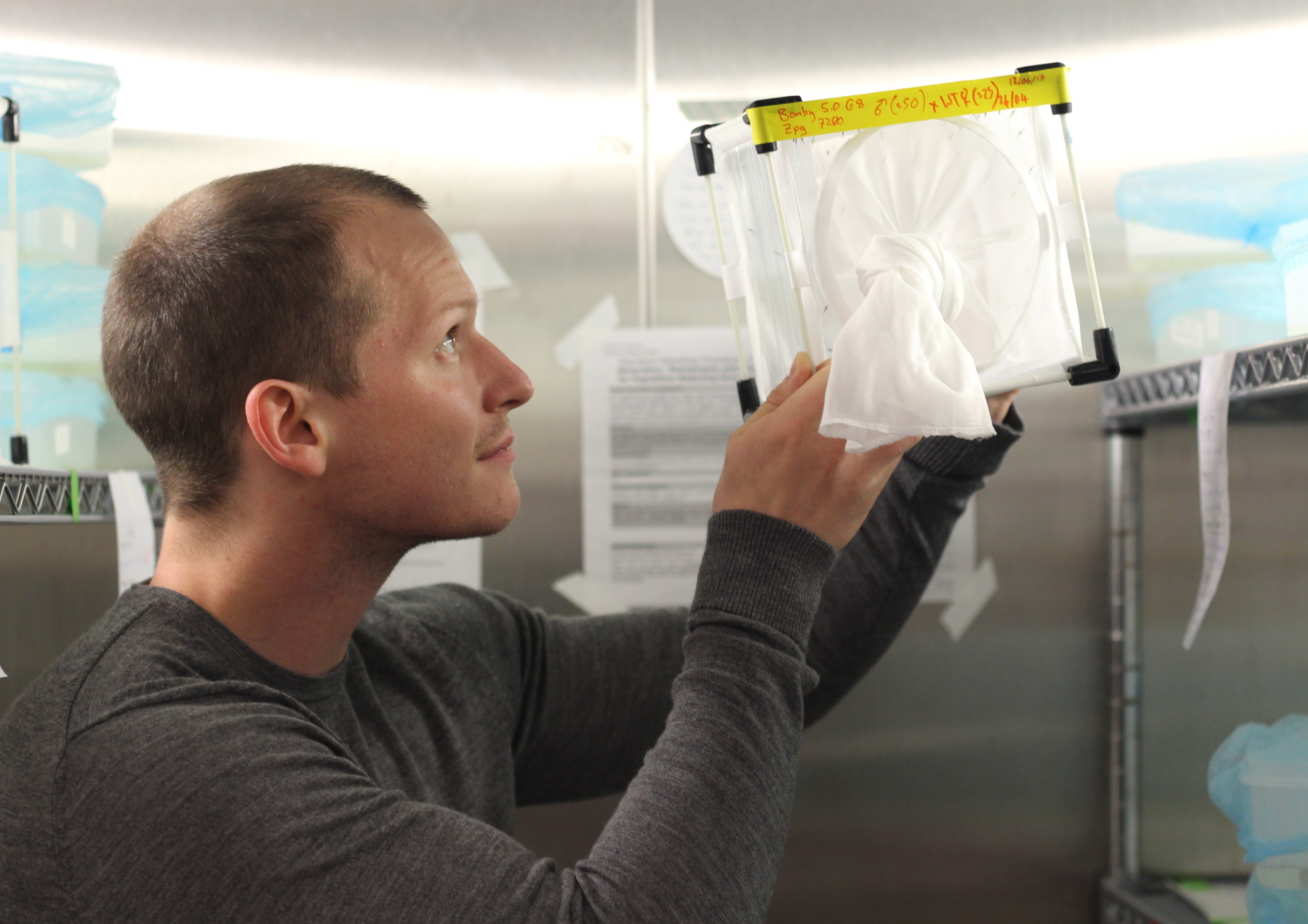Raising smoking age and mapping HIV transmission: News from the College

Here’s a batch of fresh news and announcements from across Imperial.
From recommendations to raise the smoking age to 21, to sequencing HIV transmission networks in Africa, here is some quick-read news from across the College.
Raise smoking age to 21
 Increasing the legal age for buying cigarettes in the UK could help to drive down smoking rates among young people.
Increasing the legal age for buying cigarettes in the UK could help to drive down smoking rates among young people.
In a commentary published in the BMJ this week, the NHLI’s Nick Hopkinson argues the case for policy change to help the UK kick the habit.
Children with friends who smoke are more likely to smoke themselves, so increasing the age of purchase would potentially cut their exposure to cigarettes and stamp out supply in schools, he opines.
“The tobacco industry fears this policy,” says Dr Hopkinson, explaining that public polls show the measures are popular. He adds: “Ministers should seize the opportunity to deliver a healthy legacy.”
Engineering change
 Imperial academics visited Sierra Leone to help develop its young engineering students.
Imperial academics visited Sierra Leone to help develop its young engineering students.
Professor Mike Lowe, from the Department of Mechanical Engineering, Dr Kristel Fobelets, from the Department of Electrical and Electronics Engineering and Dr Mike Templeton, from the Department of Civil and Environmental Engineering, visited peers at the University of Sierra Leone, in collaboration with UK charity Engineers for Change (Sierra Leone), to advise them on improving engineering education and practice.
Professor Lowe, who hosted USL last year, said: “We enjoyed our interactions with staff and students who showed great dedication towards teaching and learning. The students were wonderful, they all have a vision of applying their engineering skills for improving the quality of life in Sierra Leone. We look forward to strengthening our friendship and to set up further collaborations in the future.”
AI assistance for infections

Artificial Intelligence could help doctors to make better decisions in treating infections and optimise the use of antibiotics, but human input is critical.
In a comment piece, published in Nature Human Behaviour this week, Imperial researchers discuss the role of AI and how it could help with the difficult decision-making process during infection management.
Adding AI to the mix could offer doctors and patients a helping hand and lead to better use of antibiotics – targeting treatment more effectively, reducing unnecessary prescribing and helping to curb antibiotic resistance.
However, they warn that human input is crucial in the development and acceptance of AI in clinical practice. First author Tim Rawson says: “AI is a way to aid clinicians’ decision making, not replace it.”
International forum
 Imperial hosted university leaders, politicians and media at the Universities UK International Higher Education Forum, earlier this week.
Imperial hosted university leaders, politicians and media at the Universities UK International Higher Education Forum, earlier this week.
Universities and Science Minister Chris Skidmore gave a video address where he set out his vision and key principles for UK higher education on the global stage.
The Minister said: “Our world-leading universities and colleges are international at their core. Our higher education sector relies on – and indeed thrives on – international connectivity, collaboration and partnership, and I want to see all those things continuing to flourish.”
Demetris Syllouris, President of the House of Representatives of the Republic of Cyprus, gave the forum’s keynote address where he highlighted Imperial’s KIOS research partnership with the University of Cyprus.
Hydrogen know-how
 Hydrogen has long been hailed as an alternative fuel source to using fossil fuels, so scientists are on the lookout for faster, cheaper ways to source hydrogen.
Hydrogen has long been hailed as an alternative fuel source to using fossil fuels, so scientists are on the lookout for faster, cheaper ways to source hydrogen.
One of those ways is water splitting, where a process called electrolysis isolates the hydrogen from water molecules to be used as fuel. Scientists normally use platinum as a catalyst for this process, but Imperial’s Dr Cecilia Mattevi, from the Department of Materials, has developed a different form of the metal, transition metal dichalcogenide, as a catalyst that could be cheaper and faster than current methods.
Dr Mattevi said: “Our new metal could speed up the uptake of alternative fuel sources.”
Read more about Dr Mattevi’s Nature paper: Direct solution-phase synthesis of 1T’ WSe2 nanosheets
Image caption: A Hydrogen fuel pump for vehicles using hydrogen powered fuel cells (Shutterstock)
Biochemical heroes
Two Imperial researchers have been honoured in the Biochemical Society’s annual awards.

Dr Andrew Hammond won an Early Career Research Award. His work has been integral to efforts to suppress malarial mosquito populations using gene editing technologies, which have been pioneered at Imperial. Dr Hammond demonstrated the first gene drive system to control mosquito populations and worked to improve it, allowing it to spread in caged mosquitos and eliminate the population.

Professor James Barber won the Heatley Medal and Prize. His work focuses on photosynthesis and the molecular underpinnings of Photosystem II, the biological machine at the heart of the process. More recently, he has investigated artificial photosynthesis as a means of producing renewable energy based on the capture and storage of solar energy.
Read more about both awardees on the Biochemical Society website.
A helping heart
 MRI scans during pregnancy can inform treatment for foetuses with congenital heart problems - but babies in the womb move around too much for doctors to get clear images.
MRI scans during pregnancy can inform treatment for foetuses with congenital heart problems - but babies in the womb move around too much for doctors to get clear images.
A King’s College London-led team have now used a new Imperial-made computer processing method to create 3D models of unborn babies’ hearts, by MRI scanning the blood vessels around the organ which are more stationary.
Co-author Dr Bernhard Kainz, from Imperial’s Department of Computing, who developed the method used in the Lancet study, said: “Once we have enough data, we can fill in the gaps where the foetus moves too much - piecing together a 3D model of the heart like a jigsaw puzzle to create clear 3D models.”
Read more on BBC online.
Mapping HIV transmission networks
 To better tackle HIV spread, the UN recommends targeting people that are at high risk of acquiring and passing on the virus. However, identifying these people is difficult. Now, a research team from the UK (including Imperial), the US and Africa have deep-sequenced the virus from more than 15,000 infected people in sub-Saharan Africa.
To better tackle HIV spread, the UN recommends targeting people that are at high risk of acquiring and passing on the virus. However, identifying these people is difficult. Now, a research team from the UK (including Imperial), the US and Africa have deep-sequenced the virus from more than 15,000 infected people in sub-Saharan Africa.
As the virus changes as it spreads, they were able to use this data to map HIV transmission networks and track the direction of infection within them. Now they want to use the data to identify characteristics like age, location or mobility that make people more at risk of passing on the virus, so these source populations can be targeted for intervention.
Read the full paper in Nature Communications: Inferring HIV-1 transmission networks and sources of epidemic spread in Africa with deep-sequence phylogenetic analysis
–
Want to be kept up to date on news at Imperial?
Sign up for our free quick-read daily e-newsletter, Imperial Today.

Article text (excluding photos or graphics) © Imperial College London.
Photos and graphics subject to third party copyright used with permission or © Imperial College London.
Reporter
Stephen Johns
Communications Division
Ryan O'Hare
Communications Division
Hayley Dunning
Communications Division
Caroline Brogan
Communications Division
Andrew Youngson
Communications Division